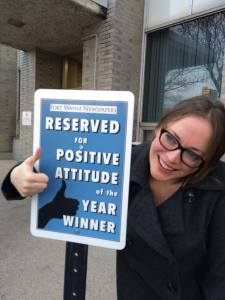The Rolling Stone with the story about Jackie her gang rape at a University of Virginia frat house there arrived at our house in dead-tree form — yes, we subscribe. (Someone remind me why.) I read it because I was in the midst of trying to get my arms around the sexual-misconduct-on-campus issue for my own stories, here and here. I’m not boasting of anything here other than skepticism when I tell you my BS detector started buzzing almost immediately — when Jackie was pushed down onto a glass-topped table, which broke underneath her, “sharp shards digging into her back.” In the same paragraph, she’s punched hard in the face. In the next, someone says, “Grab its motherfucking leg.” And that’s, the story tell us, “when Jackie knew she was going to be raped.”
The details that followed were lurid — a three-hour gang rape by no fewer than seven men, with two more looking on. One can’t get it up, and is met with jeers (“What, she’s not hot enough for you?”), so he penetrates her with a beer bottle. I will admit I was already doubting this part, even while I acknowledge it’s possible. UVA is an elite school, and while it undeniably has a history of not handling sexual assault on campus well at all, to believe just these few paragraphs I would have to believe the so-called rape culture at UVA was so pervasive, and these men felt so secure in their immunity, that nine of them would risk lengthy prison terms on the assumption that Jackie wouldn’t go to the police and that the university would look the other way. That’s an enormous leap for an informed reader to take.
And the story went on. After three hours of this ongoing attack, Jackie passes out and comes to in the room, alone. Imagine the mess she would have been after three hours of pounding on a bed of broken glass, after a fist to the face, after a bottle. She probably had trouble even walking, but somehow she stumbles unnoticed out of the frat house. It was the point at which she met some friends that we entered Lifetime Original Movie territory: One friend wants her to go to the hospital, but the other two have second thoughts. “She’s gonna be the girl who cried rape and we’ll never be allowed into any frat party again,” one says. A woman says this, we’re told.
I could go on, but you’re getting the idea. This story, presented in vivid detail, was simply too good — or too bad — to be true. I sent a few friends and colleagues my doubts via email that day, and was met with a variety of responses, but most agreed that something doesn’t smell quite right.
An editor named Richard Bradley laid out his own suspicions point by point in a blog, and pretty much parallel my thinking. I was left thinking something probably happened to Jackie, but it wasn’t this, and I’d think anyone with even a half-developed sense of skepticism would have thought to check the story further.
As everyone knows by now, the story has fallen apart. I’d like to talk a little bit about why. Check out this quote from the Washington Post:
“The doubt cast on Jackie’s story has been feeding the myth that we have been combating for 40 years that women lie about rape and I feel that will put women at a disadvantage in coming forward,” Renda said.
Confronted with what’s looking more and more like an outright fabrication, she refers to fabrication as a “myth.”
OK, so she misspoke. She claims earlier that “2 to 8 percent” of all rape claims are fabricated or unfounded, which is more than zero. I have no reason to disbelieve that figure. But when you’re building a story about the pervasiveness of campus rape, and the cold shoulder given victims by administrations, best not to make an untrue account your through-line.
I’m amazed at some of the reaction I read and heard when the story started being picked apart, i.e., the truthiness defense. This essay is typical: It doesn’t matter if her account is untrue because rape goes unpunished on campuses all the time, so it’s OK.
No, it’s not. I don’t know why it’s so hard for people to understand, but building a story like this is like building a house. If the foundation is rotten, the whole thing will collapse, “true enough” or not. And that’s not even beginning to consider the defamation/libel issues. Because here’s the problem: Campus rape is real. Gang rape at the UVA Phi Psi house is real. Sexual assault on other campuses, in other frat houses — also real. Which is why it’s so very very important to tell the truth about it.
Or, as I sometimes say by way of writing advice: When the facts speak for themselves, let them.
Here’s part of my struggle in understanding, and writing, about sexual assault — and what’s now called sexual misconduct — on campus. I’m not talking about women who pass out after a thousand beers and wake up naked in a frat-house bedroom with some sleazebag saying what a good time he had. I’m talking about the cases of miscommunication, misleading and, yes, regret that happen all the time. You don’t turn 16 and immediately know how to drive a car; you have to practice. And you aren’t born knowing how to deal with the opposite sex, or whatever sex you’re attracted to, with confidence and charm. There’s a learning curve. It doesn’t always go well. Add alcohol, and it’s virtually a certainty.
Say I’m an 18-year-old freshman and don’t have a thousand beers. Say I have five or six. I’m buzzed. So is the guy I’m dancing with. Maybe we have sex. Maybe I wake up tomorrow, hung over, and say ugh. The Title IX guidelines explicitly state that a person who has been drinking or taking drugs cannot may not be able to give consent; if I decide to file a complaint about this, I’m on solid ground. (Victims’ advocates insist these second-thoughts cases are rare. It’s hard to tell from the data, which doesn’t contain many details) And maybe the guidelines should state this, because what else are you going to do? Require pocket breathalyzers in every dorm room? And so then you get policies that seem to have taken the whole of human sexual interaction, with all its subtlety, ambiguity, gray areas, pursuit, thrust and parry, and tried to make, well, policy. In its own way, it’s as rigid as abstinence-until-marriage. And I still don’t understand how a generation taught that any alcohol consumption = no consent will deal with the world outside campus, where alcohol accompanies mating dances every night of the week.
So we’re left with the system we have now, and advocates who say things like this:
“The first thing as a friend we must say is, ‘I believe you and I am here to listen,’” says Brian Head, president of UVA’s all-male sexual assault peer education group One in Four. Head and others believe that questioning a victim is a form of betrayal, because it will make her feel judged and all the more reluctant to ever speak about what happened. None of the people we spoke to had asked Jackie who the men were, and in fact none of them had any idea. They did not press her on any details about the incident.
In most cases, this is probably the better approach, because most women won’t put themselves through the wringer — and it is a wringer — if they feel they won’t be supported. Most will take their ugh home and deal with it however they will. But 2 to 8 percent may be women like Jackie. Who is going to share responsibility for setting the whole issue back, significantly. And that’s the damn shame in all of this.
I contrast the Jackie story with this Q-and-A about another UVA frat-house rape, from Jezebel. It’s about a woman who wakes up after a boozy party knowing something bad had happened to her, but remembering nothing. She makes mistakes (a shower), but does other things right, and the story about how her case wound its way through the UVA grievance process existing at that time feels far truer than the literally incredible tale of Jackie. It’s also a defense of the school’s quasi-judicial system — roundly criticized in the Jackie story — because while it couldn’t put her assailant behind bars, at least it gave this woman something. She would have been a better person to carry a narrative for Rolling Stone, but then, it would have raised other questions.
Like alcohol. This woman now realizes she has a drinking problem, and is sober now, but her assault was undoubtedly abetted by drinking that night. Some victims’ advocates get incandescent with anger if you even raise the issue, and I get why: It’s hard to navigate the narrow space between telling women to be careful about their drinking in social settings, but still hold that if things go wrong, it isn’t their fault. It’s a fact that alcohol clouds judgment and represses your self-preservation instincts (“hey er’rybody, watch this”); it is not victim-blaming to point this out. Yes, men will rape in the absence of alcohol or blackout drunkenness. But prudent cautions about drinking and drugs absolutely have to be a part of this.
So that’s what I cogitated on this weekend, watching things unravel for Jackie (whose last name is now out there, a totally predictable turn of events), Rolling Stone and others. I’m haunted about something a younger friend told me, about seeing a nude woman led stumbling through a wild party on a Michigan college campus a few years ago, then taken into a room with two men. Who closed the door. These things happen. I think they happen quite a lot. And thanks to this fiasco, we’ll be that much longer figuring out what to do about it.


